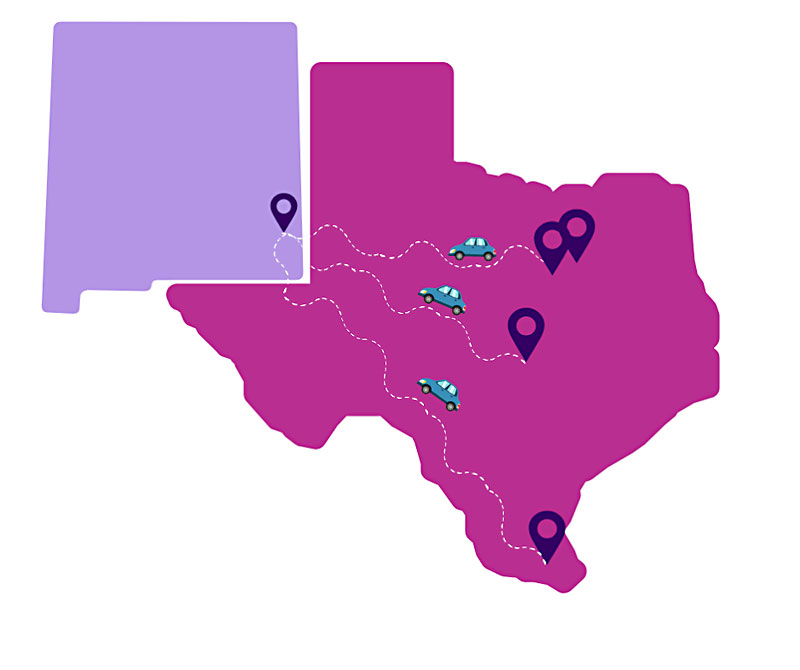Texas’ Largest Independent Abortion Provider Needs Help Getting to New Mexico
They face a mess of restrictive laws and fake callers
By Maggie Quinlan, Fri., July 22, 2022

At the four clinics in Texas operated by Whole Woman's Health – Texas' largest independent abortion provider – staff are carefully boxing medical equipment, patients who received abortions weeks ago are getting their follow-up appointments, and receptionists picking up the phone are at a loss for words. The abortion funds they once pointed patients to for help with travel costs have paused their work.
"There's no one they can call to help them travel because everybody is so scared," founder Amy Hagstrom Miller put it. "It's not rocket science here. You take away safe abortion and you take away the option to travel for safe abortion, guess what? People are going to have to carry pregnancies. ... This is not abstract at all for our clinic staff. They're the folks who are looking patients in the face and seeing their anguish."
She is far from giving up the fight, though, and refuses to harbor resentment for Americans who are just now waking up to the reality that her team has been fighting to prevent for almost two decades. Whole Woman's Health is moving to a southeast New Mexico town bordering Texas. Close to 3,000 donors have raised $250,000 to cover some of the costs, but the organization expects to need at least $500,000 more. Securing medical records for storage and packing up equipment in Texas will take at least a month, and the timeline for opening a new brick-and-mortar clinic is unclear.
The good news is that they will not be building from the ground up – they're searching for a location they can convert into a clinic. Whole Woman's Health already offers virtual services in New Mexico, including mailed abortion pills. Losing revenue (and abruptly ending leases in two of the four Texas clinics) will make the cost of moving even harder to meet, but Hagstrom Miller is hopeful that selling the two clinic buildings WWH owns can help them recoup some of the losses. They'll need every cent they can get, because the demand for a New Mexico clinic will be great. Prior to Roe's fall, but after Texans were up against Senate Bill 8's six-week ban and vigilante civil suits, already about a third of patients at Whole Woman's Health's Minnesota clinic were traveling from Texas.
Clinics like that one, operated by WWH in haven states, are now targeted by anti-abortion callers pretending to be patients so they can take up appointment times and make the waiting lists longer for real patients. Hagstrom Miller said clinics may only see 10 people show up on a day with 30 appointments. "Normally if we have 30 on the schedule, 28 show up. ... We can't really vet patients. A big part of our mission is to believe people," Hagstrom Miller said. "It's also scary for the staff when they get the sense that somebody's making a fake appointment. They're trying to catch you providing a legal abortion in a haven state."
Still, WWH's Wayfinder program is helping patients find care where it is still legal, and the Whole Woman's Health team is shifting focus to measures that could make access easier for Texans – helping abortion providers currently only licensed in Texas to get licensed in other states, finding support from federal or state governments to relocate to haven states, and allowing providers licensed in New Mexico to offer virtual appointments while physically in another haven state. For those Texans who are beginning to understand the power of America's anti-abortion movement, these issues should become top of mind, Hagstrom Miller said.
"It's going to take all of us to build a future for our children that doesn't do this. This is a systems problem. This is about the white men in charge. ... We're experiencing minority rule. We're experiencing voter disenfranchisement. This isn't about abortion. This is about equality and autonomy."
Got something to say on the subject? Send a letter to the editor.
Read more of the Chronicle's decades of reproductive rights reporting here.








